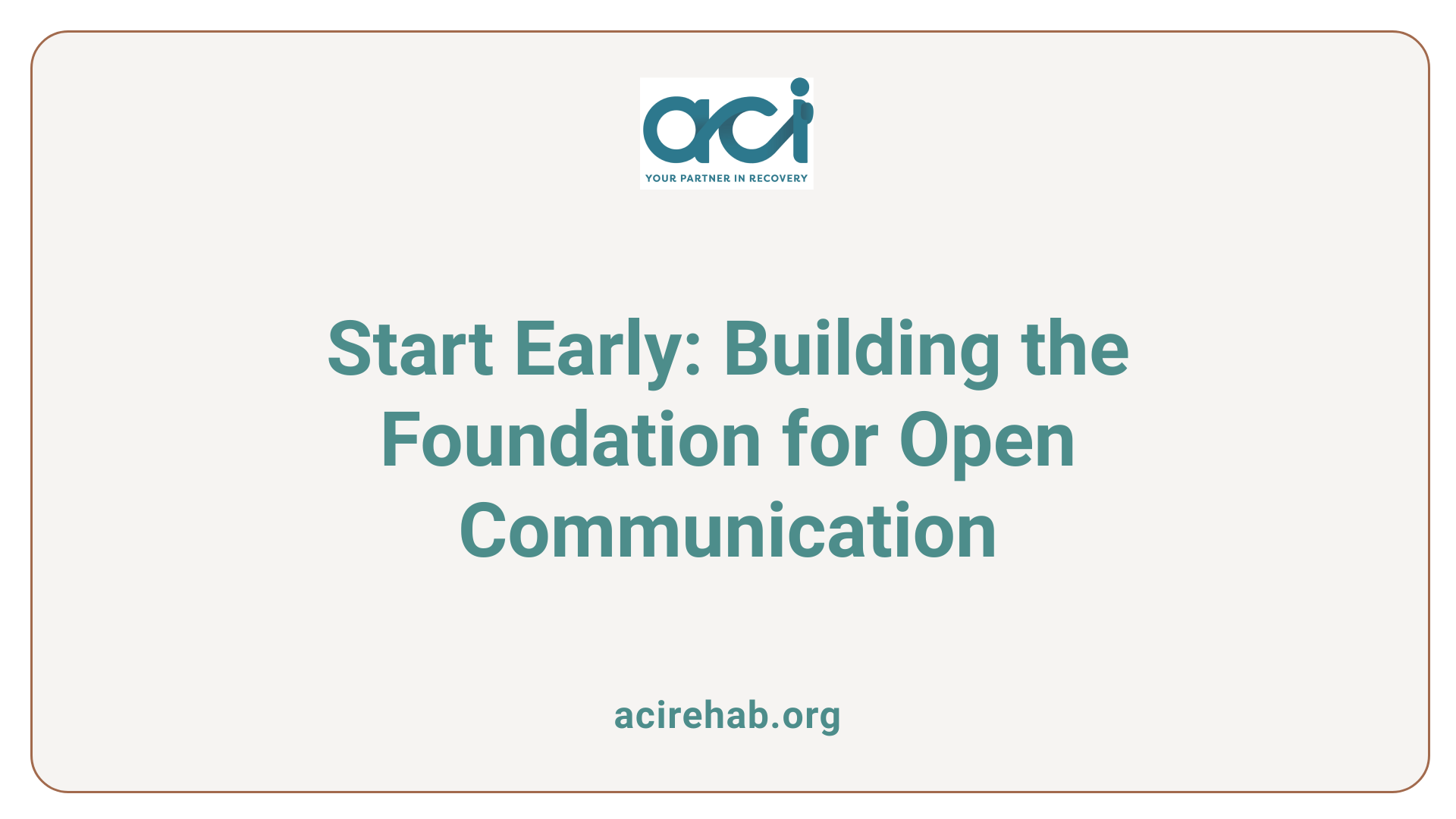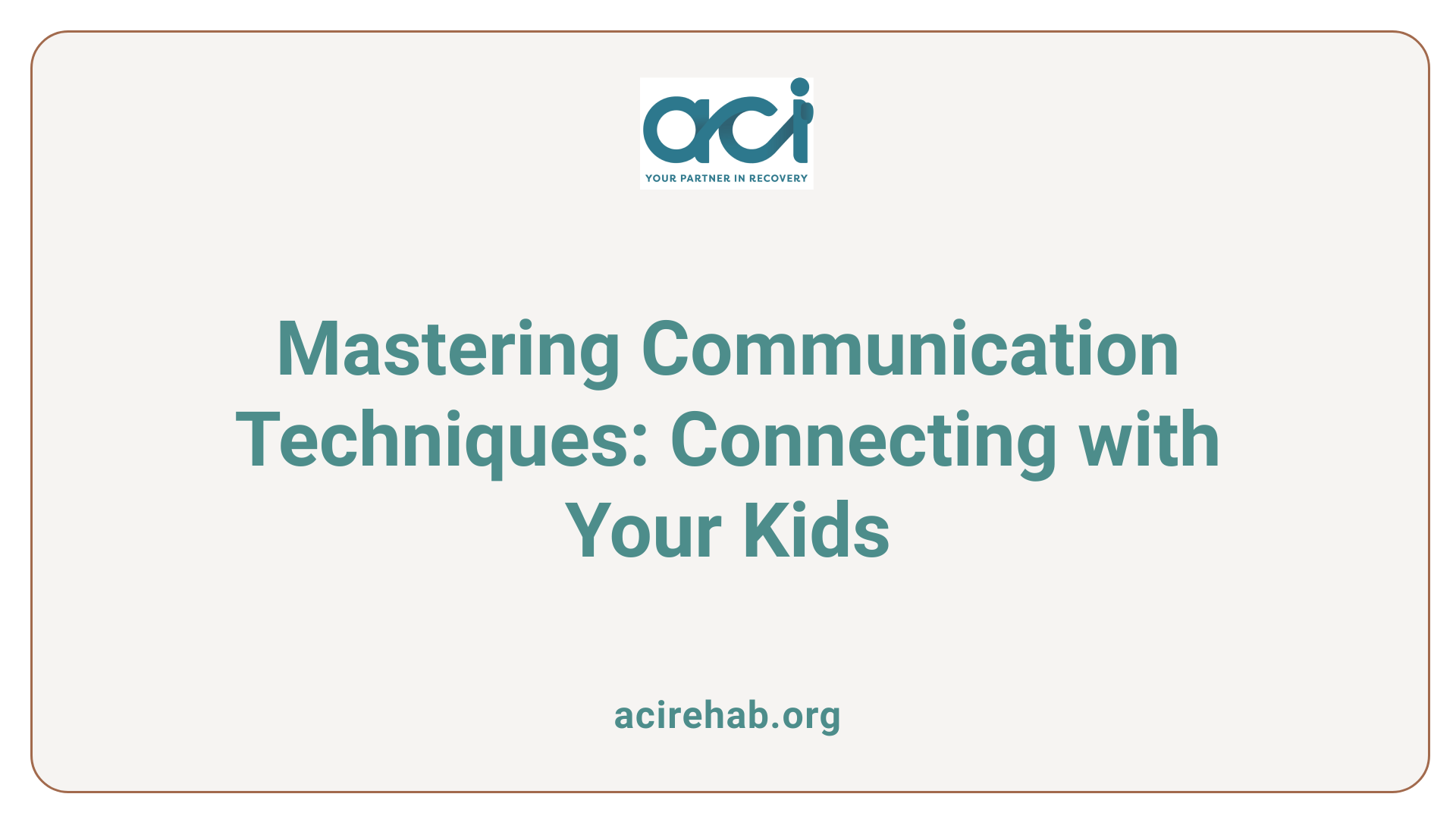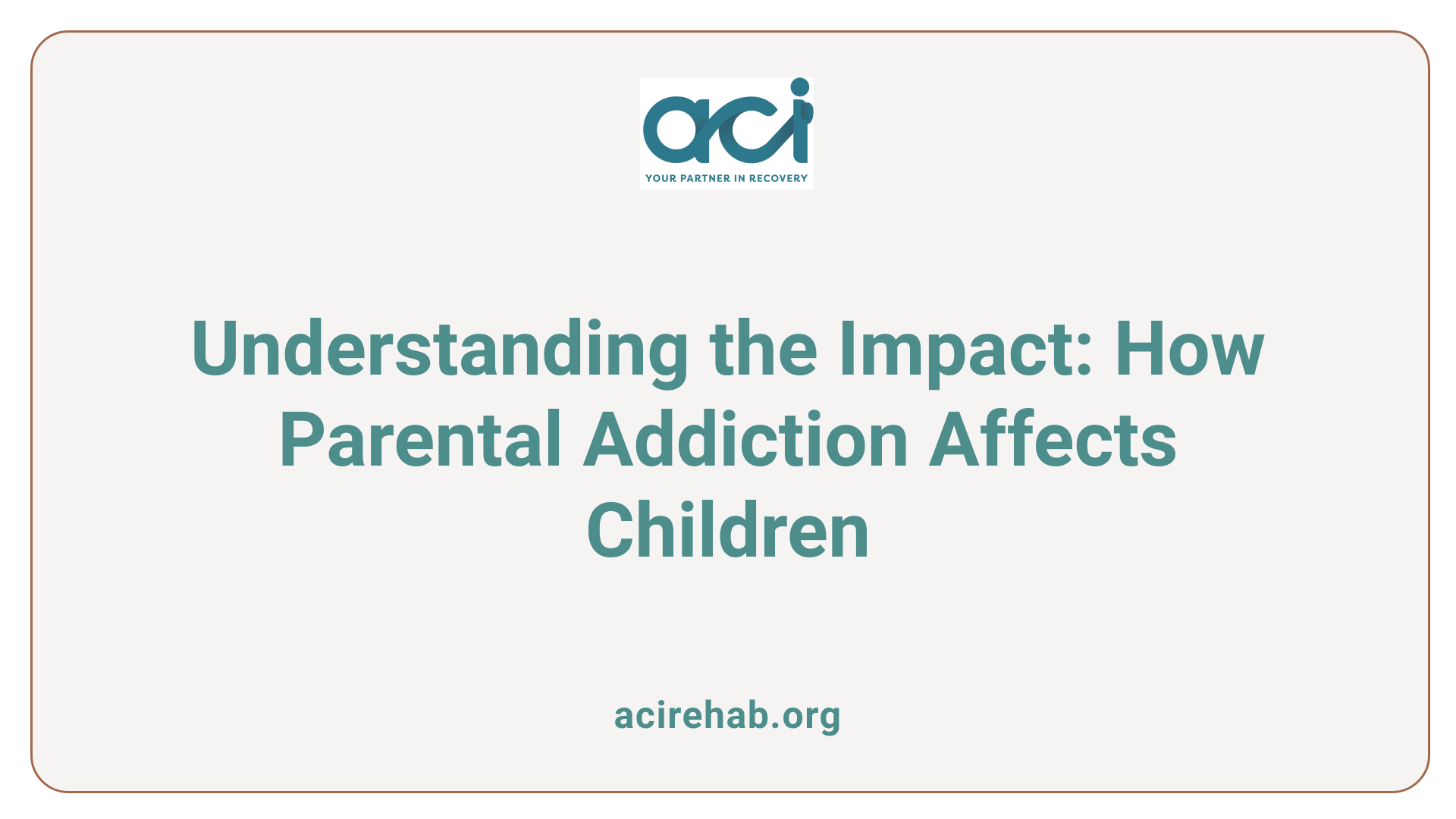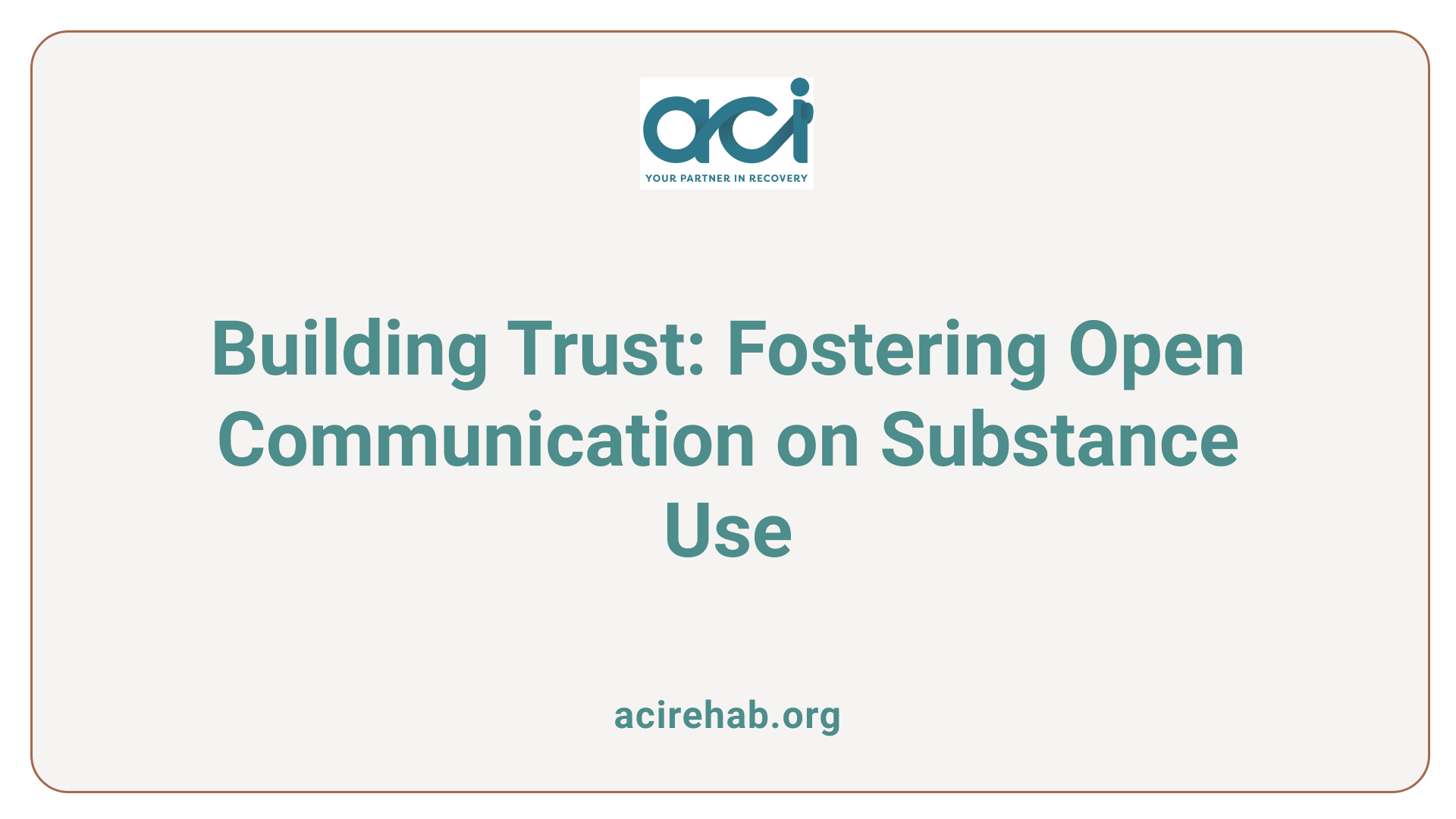Introduction
Discussing drugs with children is a delicate topic that requires thoughtful navigation. Parents often wonder how to effectively communicate the dangers of substance use without delving into their personal histories. This guide provides parents with strategies to engage in honest, age-appropriate conversations that stress the importance of understanding the implications of drug use, thus facilitating an open dialogue without compromising on the clarity of purpose.
Start Early and Use Age-Appropriate Language

Benefits of Starting Early
Having conversations about drugs with children from a young age lays a strong foundation for open communication. Research suggests that when parents start discussing substance use as early as age 5 or 6, kids develop better coping skills and are more likely to seek guidance as they grow. This early dialogue fosters trust and allows children to feel comfortable bringing up sensitive topics as they arise.
Key benefits include:
- Trust Building: Early discussions enhance the parent-child relationship, making children more likely to share their experiences or concerns.
- Informed Choices: Children equipped with knowledge about the risks of drug use are better prepared to make responsible decisions as they enter their teenage years.
- Prevention: Ongoing dialogues can deter risky behavior by making substance use seem less appealing.
Approaching Conversations Based on Child’s Age
The way parents discuss drugs should evolve as children mature. For younger kids, simple and clear language works best, avoiding complicated details. As children reach pre-teen and teen years, discussions can shift to more complex issues such as addiction, peer pressure, and the legal implications of substance use.
Some strategies include:
| Age Group | Conversation Focus | Strategies |
|---|---|---|
| 5-7 years | Basic Awareness | Use teachable moments, such as commercials, to introduce concepts of drug use and legality. |
| 8-12 years | Open Discussions | Encourage questions, discuss societal views on drugs, and address their friends’ influences. |
| 13-18 years | Real-Life Consequences | Discuss peer pressure, the dangers of driving under the influence, and the financial costs associated with drug habits. |
Parents should aim for a two-way dialogue that encourages kids to express their views and ask questions. This collaborative approach ensures that discussions are relevant and tailored to their child’s experiences.
Techniques for Effective Communication

What are effective communication techniques for parents discussing drug-related topics with their kids?
Effective communication is essential when addressing drug use with children. Starting conversations early lays a strong foundation for ongoing dialogue, making discussions more natural and approachable. Parents should use age-appropriate language, clearly explaining the nature of drugs and their effects. For younger children, highlight the role of medicine versus the dangers of illegal substances. For older kids and teens, shift the focus towards peer pressure, legal implications, and health risks associated with substance use.
Creating a non-judgmental environment encourages children to ask questions and share their perspectives. This openness is crucial; it allows children to feel safe expressing their views and concerns without fear of reprimand. Parents can use teachable moments from real-life scenarios or media portrayals to discuss these subjects meaningfully. Utilizing reliable online resources and support services can enhance understanding and strengthen parental credibility on the topic. By fostering an atmosphere of trust and open communication, parents can effectively guide their children toward informed choices regarding substances.
The Impact of Parental Addiction on Children

How does a parent’s addiction affect their child?
A parent’s addiction can have profound effects on their child’s life across numerous areas, often creating an environment filled with instability and uncertainty. Research highlights that children of parents who abuse substances face a heightened risk for various physical and psychological issues, characterized by a small but statistically significant effect size of r = .15 across multiple studies.
Notably, the type of substance abused plays a role in determining the extent of the impact. Children of parents who use drugs generally experience more severe consequences (r = .25) compared to those whose parents abuse alcohol or tobacco, which have similar yet lower effect sizes (r = .13 each).
These children are particularly vulnerable to adverse childhood experiences (ACEs), such as living with a parent who has an addiction. ACEs dramatically raise their likelihood of facing mental health challenges, developmental setbacks, and difficulties in social situations. With about 12.3% of children in the U.S. living with at least one parent with a substance use disorder, addressing these adversities is crucial. There’s a pressing need for intervention programs to support these children and promote better outcomes for their overall well-being.
Family discussions and support
Engaging in open discussions about substance use within the family context can serve as protective factors against the negative outcomes associated with parental addiction. Effective communication encourages children to express their feelings and seek help when navigating complex emotions or situations related to substance use. Supporting families grappling with addiction can reinforce bonds and provide children with a sense of stability amid chaos, fostering resilience and improved coping strategies as they grow into adulthood.
For instance, programs that educate parents about the importance of discussing their struggles and modeling healthy behaviors can create a nurturing environment for children, equipping them with the tools they need to make informed choices about substance use.
Building Trust and Open Communication

How can parents build trust and open communication regarding drug-related issues?
Parents can establish trust and promote open dialogue about drug-related issues by starting discussions early in their children’s lives. Engaging children around the ages of six or seven, using age-appropriate language, helps create a foundation where children feel comfortable sharing their thoughts.
It’s essential to provide factual and unbiased information about drugs and their effects. Parents should avoid exaggerating risks, as this may lead to distrust. Instead, they should clarify misconceptions that children may have, promoting a safe environment where asking questions is encouraged.
Establishing clear rules regarding substance use—such as abstaining from alcohol until age 18—also plays a significant role. Parents should explain their beliefs while backing them up with factual information, guiding children in understanding the implications of drug use.
Another vital aspect is maintaining regular conversations, which enables parents to equip their children with strategies to navigate drug-related situations. This two-way communication fosters a relationship where children feel valued and supported, enabling them to make informed choices regarding substance use.
Avoiding Personal Anecdotes in Drug Discussions

Why is it important to discuss drugs with children without referencing personal experiences?
Discussing drugs with children without referencing personal experiences is crucial for maintaining an educational focus. When parents share personal anecdotes, they may unintentionally influence their children’s perceptions, leading to misconceptions based on individual experiences rather than accurate information. Children need to form informed opinions grounded in factual content about substance use.
Starting these conversations early, using age-appropriate language, fosters an open environment. Kids should feel comfortable asking questions without fear of judgment, crucial for honest dialogue.
Setting Clear Rules and Communicating Risks
Clear communication of rules and consequences surrounding drug use is vital. Parents should articulate their stance against substance use and explain the potential health risks, legal consequences, and impact on personal relationships. This helps children navigate risky situations and reinforces serious attitudes about substance use.
Continued conversations as children grow ensure they develop sound decision-making skills regarding drugs, empowering them to choose wisely in the face of peer pressure and societal influences.
Understanding the Four C’s of Addiction
What are the four C’s of addiction to drugs?
The four C’s of addiction are Craving, Compulsion, Control, and Consequences.
- Craving refers to an intense, often uncontrollable desire for the addictive substance or behavior. This craving can become overwhelming, frequently leading to withdrawal symptoms when the desire isn’t met.
- Compulsion describes the overpowering urge to engage in addictive behavior despite recognizing its negative outcomes and impact on life.
- Control highlights how an individual loses the ability to regulate their behavior related to the substance, often resulting in broken promises about quitting or reducing usage.
- Consequences encompass the disregard for significant negative outcomes, such as health issues, strained relationships, and neglected responsibilities, while still engaging in the addictive behavior.
Understanding these elements can assist parents when discussing substance use with children, emphasizing the real risks associated with drug use and the importance of healthy choices.
Conclusion
Navigating drug discussions with your children is essential for their understanding and safety. By focusing on informative, honest dialogues and avoiding personal anecdotes, parents can create an environment where children are encouraged to ask questions and express their concerns. Remember, maintaining ongoing communication and being a credible resource for your children will significantly influence their perceptions and choices regarding substance use. Let’s empower our kids with the right knowledge and values to make safe and responsible decisions.
References
- Talking to Your Kids About Drugs (for Parents) | Nemours KidsHealth
- SAMHSA’s National Helpline
- Why You Should Talk With Your Child About Alcohol and Other Drugs
- Prepare yourself to talk effectively – Drug Free Kids Canada
- [PDF] How to talk to your kids about drugs if you did drugs.
- Teens and drugs: 5 tips for talking with your kids – Harvard Health
- 8 Tips for Talking to Kids About Drugs – HealthPark Pediatrics
- How to Talk to Your Teen About Substance Use – Child Mind Institute
- Teen drug abuse: Help your teen avoid drugs – Mayo Clinic
- 8 tips for talking (and listening) to your teens about drugs and alcohol

